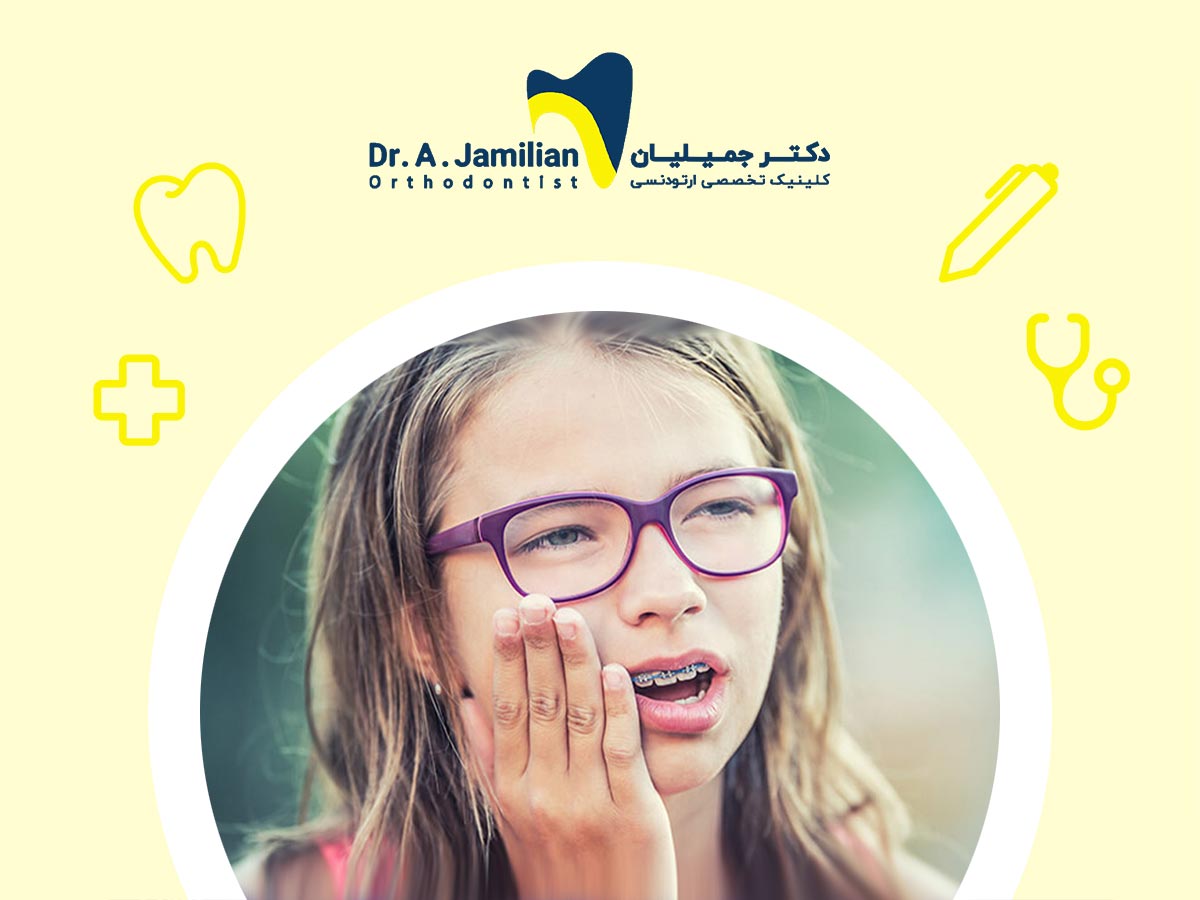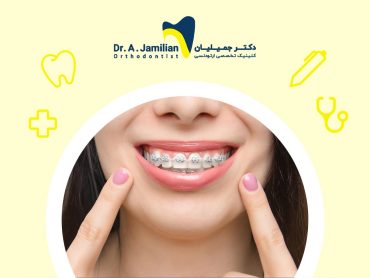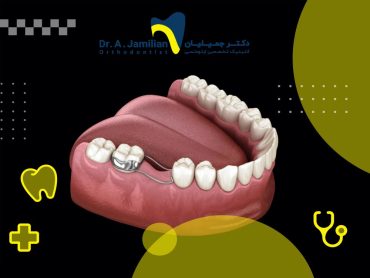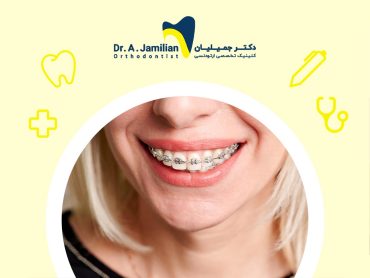An orthodontic emergency is a situation where an individual must immediately consult an orthodontic specialist and inform them of the current circumstances. Waiting for the next appointment is only advisable when there are no threats to your oral environment. Patients undergoing orthodontic treatment should be aware that they need to visit their orthodontist promptly if any issue arises. Adhering to orthodontic instructions can reduce the likelihood of emergencies. However, some sudden incidents can also create emergency conditions. If a removable orthodontic device breaks or is lost, or if a fixed orthodontic bracket breaks or encounters any problem, the patient should immediately call for an emergency appointment and visit the orthodontic specialist. This is necessary due to the improper movement of teeth and potential damage to the oral mucosa.
Upon visiting the specialized orthodontic clinic, the orthodontist will check if the damage to the fixed or removable orthodontic bracket has caused it to break. If so, it will be examined, repaired, and reconstructed simultaneously. In some cases, the patient might swallow a detached bracket. If the orthodontic bracket is swallowed, the patient should consume high-fiber foods such as fruits and salads to expel the swallowed piece and prevent digestive issues quickly. Conversely, when a minor orthodontic issue occurs, and the patient does not feel pain or discomfort, it is better to wait until the next appointment to address the problem.
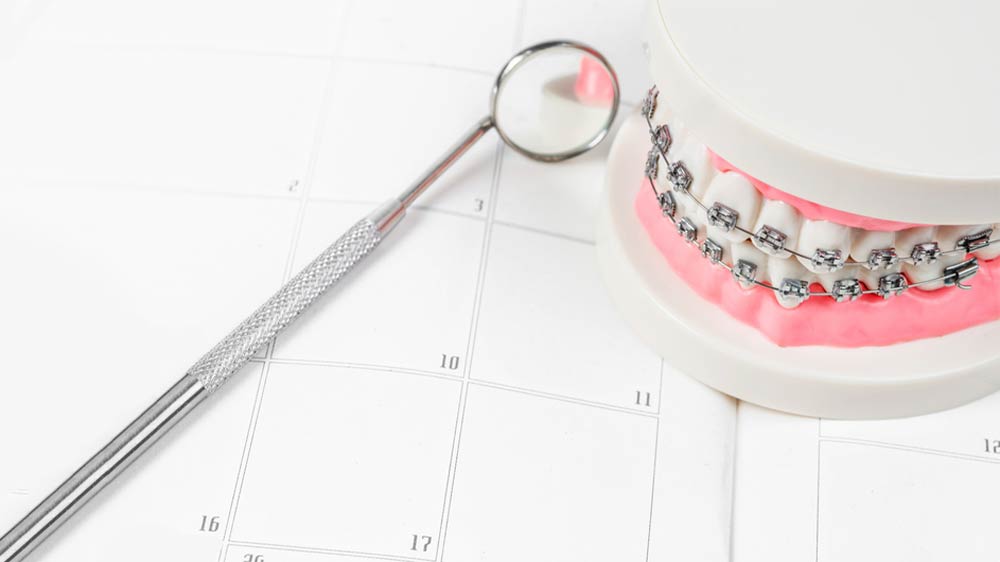
How long does an orthodontic emergency appointment take?
When you contact an orthodontic office or clinic to request an emergency appointment for bracket evaluation, you will be scheduled as soon as possible. These will commonly be for an appointment either on the same day or within one to two days to ensure your fixed orthodontic brackets are replaced or repaired. After the orthodontist examines and assesses the situation, it takes a duration of 20 to 30 minutes for the new brackets to be prepared. The loss of a bracket, no associated pain or the loss of an orthodontic wire, does not always constitute a dental or orthodontic emergency, and in some cases, you can wait until your next appointment.
What situations are considered as orthodontic emergencies?
During orthodontic emergencies, the patient may experience pain, irritation, and bleeding. If such symptoms are observed, it is essential to immediately visit the orthodontist to arrange an emergency appointment to address the issue. The following are considered the most critical conditions in orthodontic emergencies. If any of the following occur, immediate consultation with orthodontists is advisable.
1- Orthodontic emergencies in situations of pain and sensitivity
When orthodontic brackets are installed, the new pressure applied to the teeth may cause pain or irritation. In rare instances, a patient might endure severe pain, which can be particularly distressing. In this situation, immediate consultation with an orthodontist is advisable.
Some patients may be sensitive to orthodontic brackets, leading to allergic reactions in the mouth. Suppose you continue to experience irritation or other reactions after a few days and feel symptoms are intensifying. In that case, it is imperative to inform the orthodontist as soon as possible. The orthodontist can then implement available solutions to relieve the patient’s discomfort.
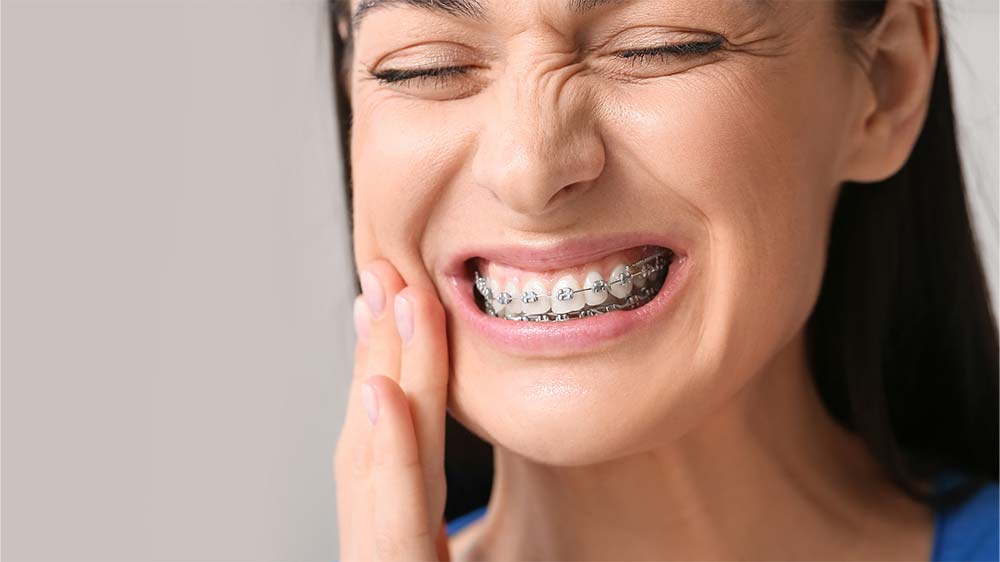
2-Orthodontic Emergencies in situations of accidents or severe dental impact to the teeth
If you experience severe bleeding, pain, irritation, or dislodgement of orthodontic components during an orthodontic treatment. It is of utmost importance to visit an orthodontic specialist promptly. Such incidents are among the most critical orthodontic emergencies and must be examined and assessed by a dentist to prevent any subsequent issues. Any disruption to the orthodontic treatment plan can impede its progress and effectiveness.
3- Loose Orthodontic Brackets
If a bracket becomes loose but remains attached to the wire, it can be repositioned easily without requiring an emergency orthodontic appointment, provided it does not cause significant pain or discomfort. Inappropriate diet during treatment and tampering with orthodontic appliances can contribute to bracket loosening. The loose bracket can be covered with orthodontic wax until it can be addressed by the orthodontist during the next visit.
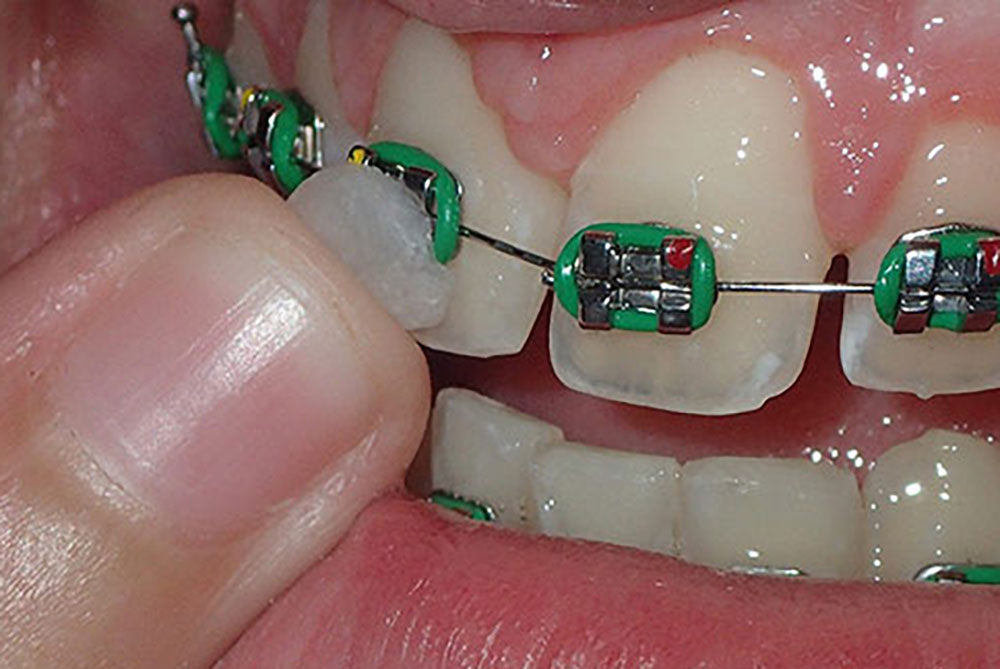
4- Protruding orthodontic wires
Occasionally, at the beginning of a treatment, improper brushing or consuming certain foods may displace orthodontic wires. When this occurs, the wire can be repositioned using a cotton swab. The end of the wire may protrude, causing discomfort to the lips and cheeks. If this issue persists, orthodontic wax can be used, and it is advisable to contact the orthodontist’s office immediately for an expedited appointment.
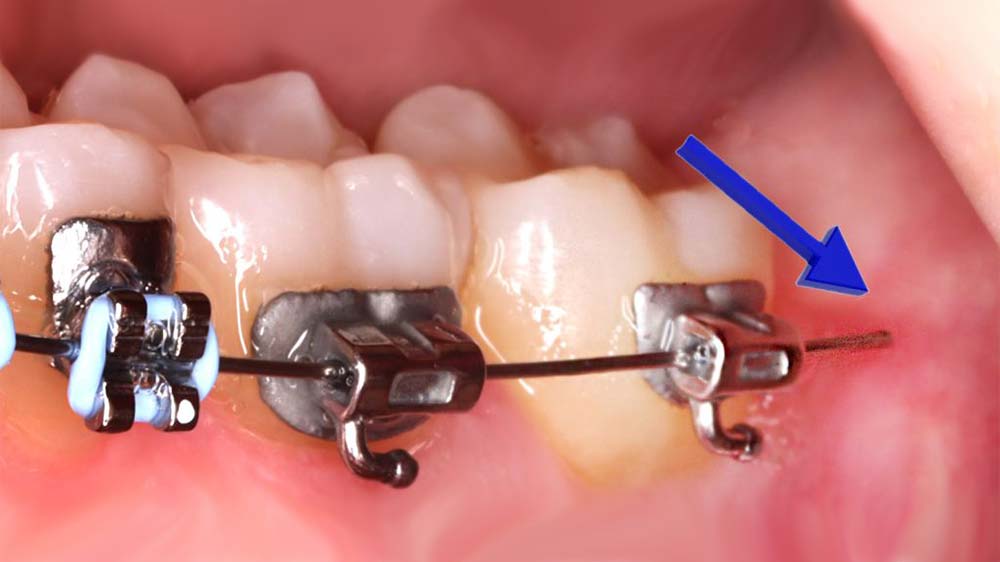
Practical Tips for Preventing Orthodontic Emergencies
Orthodontic emergencies are rare occurrences. Patients undergoing orthodontic treatment should consult their orthodontist promptly if any issues arise. Adhering to orthodontic guidelines reduces the incidence of emergencies; however, some unexpected incidents may still necessitate urgent care. Considering these circumstances, acquaintance with critical guidelines and preventive measures for protecting orthodontic appliances is imperative. By reviewing the important guidelines outlined below, you can effectively care for your teeth and the braces installed on them. These beneficial and practical strategies are as follows:
- Avoid Hard and Crunchy Foods: When braces are on your teeth, it is advisable to refrain from consuming hard and crunchy foods, as these can increase the risk of damaging orthodontic brackets.
- Do not forget to use a mouthguard: To protect orthodontic brackets and prevent them from breaking or loosening, it is recommended to use a mouthguard during sports and high-intensity activities.
- Abandon unhealthy habits: Abandon unhealthy habits such as nail-biting or chewing on objects like pencils and pens, as they can damage orthodontic brackets. Ignoring this advice may result in significant discomfort and pain in the teeth and gums.
- Do not disregard regular visits to your orthodontist: Some individuals neglect or forget to visit their orthodontist after getting braces. It is crucial to monitor the condition of the braces regularly. Follow your orthodontist’s recommendations and attend scheduled appointments to ensure the braces are functioning correctly.
- Maintain oral hygiene: Maintaining oral hygiene is critical during orthodontic treatment. Use a specialized toothbrush and mouthwash to keep your teeth clean.
While orthodontic procedures at Dr. Jamili’s specialized clinic are rare, appropriate measures are provided to ensure patient comfort and a pleasant experience throughout the orthodontic treatment.
